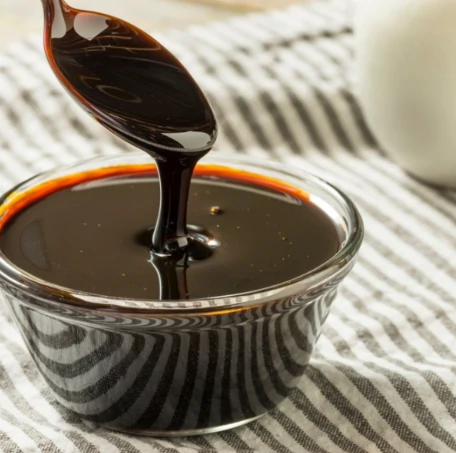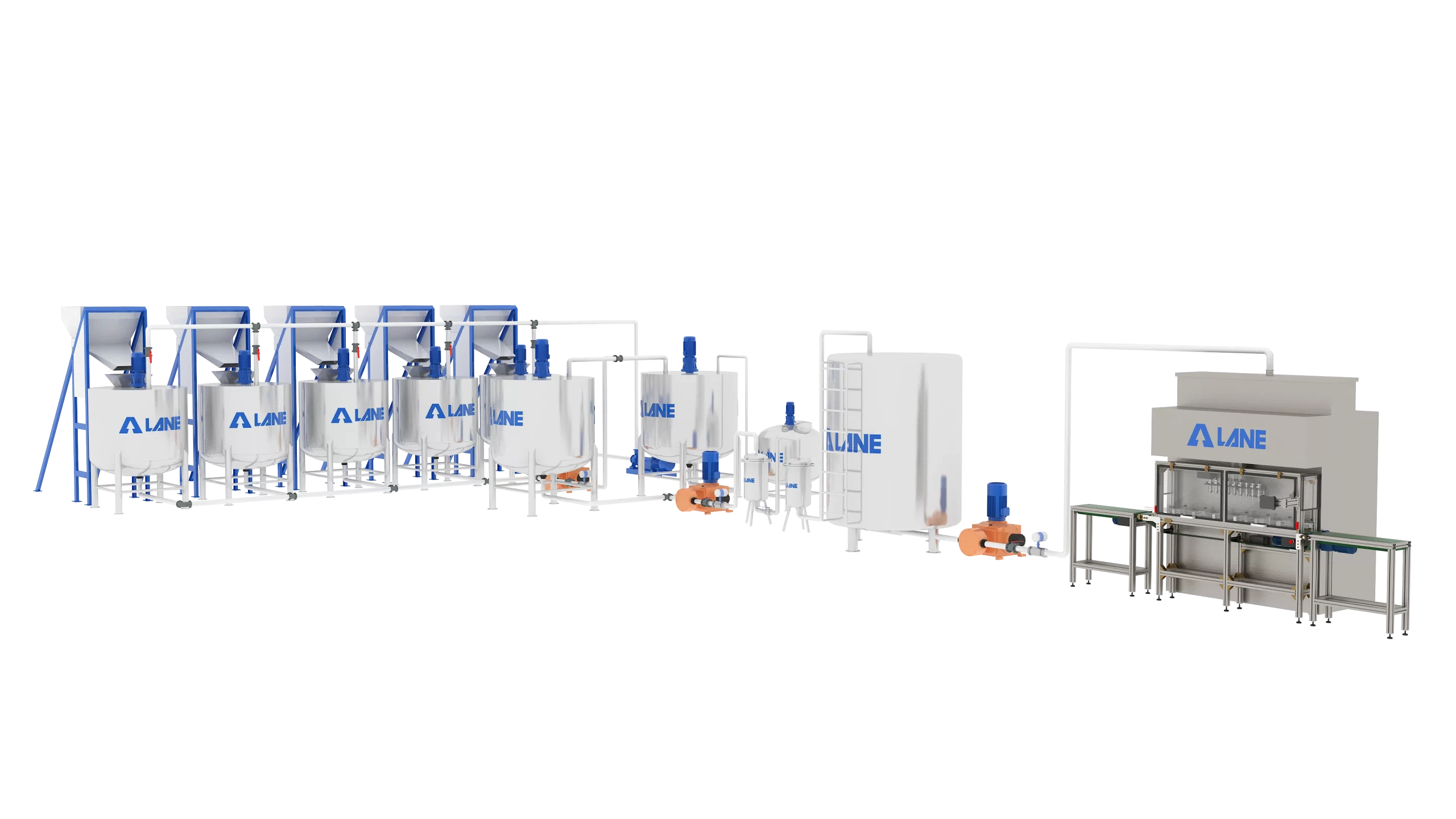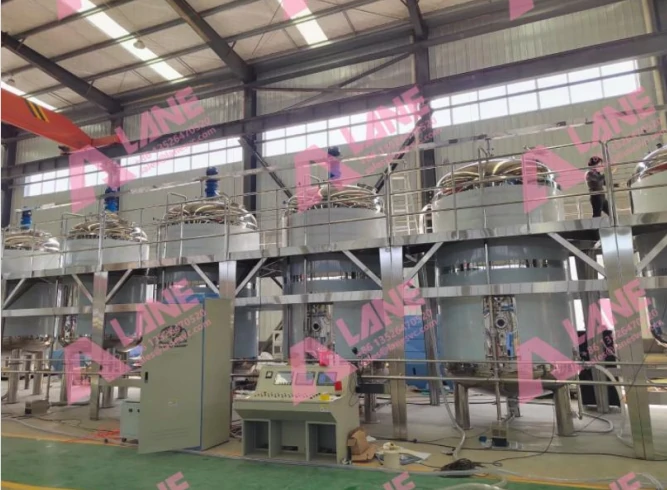
Molasses Liquid Fertilizer Production: A Sustainable Path for Modern Agriculture
Molasses liquid fertilizer production is the intersection of sustainable development and agricultural innovation. As a by-product of the sugar industry, the disposal of molasses often poses challenges. However, when it is transformed into molasses liquid fertilizer production, it becomes a powerful resource that can enhance soil vitality, promote crop growth, and align with the principles of a circular economy. Farmers around the world are exploring how molasses liquid fertilizer can increase productivity while reducing reliance on synthetic chemicals.
The core of this transformation lies in advanced production technologies. Companies like LANE, with decades of expertise and turnkey solutions, make molasses liquid fertilizer both efficient and economical.

Molasses is the thick, nutrient-rich syrup left after sugar crystallization. When fermented or formulated into liquid fertilizer, it becomes:
Rich in Sugars and Carbon: Feeding soil microorganisms and energizing microbial activity.
Packed with Micronutrients: Including calcium, potassium, magnesium, and trace elements vital for plant health.
An Organic Soil Conditioner: Improving structure, boosting moisture retention, and reducing compaction.
A Circular Solution: Diverting a waste stream into an agricultural input.
In short, molasses liquid fertilizer production is not just a product—it’s a sustainable farming approach.
Soil Microbial Stimulation: The sugars in molasses liquid fertilizer feed soil microorganisms. These beneficial microbes thrive when given a readily available energy source, accelerating the decomposition of organic matter and improving soil structure. Over time, soils treated with molasses liquid fertilizer develop stronger biological activity, which translates into healthier, more productive farmland.
Improved Nutrient Uptake: Molasses liquid fertilizer contains not only carbon but also key micronutrients such as calcium, potassium, and iron. When applied to fields, it enhances the efficiency of nitrogen, phosphorus, and potassium fertilizers already present in the soil. This synergy helps plants absorb nutrients more effectively, reducing losses from leaching or volatilization.
Enhanced Crop Health and Yield: Farmers report stronger root development, improved drought tolerance, and better disease resistance when using molasses liquid fertilizer. Crops grown with it often show improved flavor, higher sugar content, and increased shelf life—valuable for commercial producers of fruits, vegetables, and grains.
Eco-Friendly Farming Solution: Unlike synthetic fertilizers, molasses liquid fertilizer reduces the risk of chemical residues and groundwater pollution. By recycling sugar industry byproducts, it also prevents waste accumulation and supports a circular economy model in agriculture.
Sustainable Long-Term Soil Improvement: Continuous use of molasses liquid fertilizer not only feeds crops but also rebuilds soil organic matter. Over years of application, soils become more fertile, water-holding capacity increases, and reliance on synthetic inputs decreases—creating a self-sustaining system.
Turning sticky molasses into stable fertilizer requires precision equipment. This is where LANE Heavy Industry Machinery Technology Co., Ltd. excels.
Key strengths of LANE’s solutions include:
Integrated Production Lines: From raw material pretreatment to final packaging, LANE provides full molasses liquid fertilizer lines that include crushing, mixing, fermentation, filtration, sterilization, and bottling.
High-Grade Stainless Steel Tanks: All vessels and pipelines are built from 304 stainless steel, smooth and resistant to corrosion, with CIP (Clean-In-Place) systems ensuring hygiene and efficiency.
Advanced Separation and Filtration: Inclined separators, double-stage filters, and spin filters guarantee clarity, even when handling viscous molasses. This ensures consistent molasses liquid fertilizer quality.
UV Sterilization Technology: Protects the fertilizer from microbial contamination without chemicals, ensuring safety for both plants and soil.
Automation and Precision: PLC-controlled dosing, mixing, and filling systems reduce human error, save labor, and enhance product consistency.
Turnkey Expertise: With over 20 years of OEM/ODM experience and more than 500 successful installations worldwide, LANE offers not only machinery but also design, layout, training, and after-sales support.
| Production Step | Challenge with Molasses | LANE Solution |
| Raw material handling | Viscosity and stickiness | Heavy-duty pumps and stainless pipelines |
| Mixing & fermentation | Risk of uneven blending | Stainless steel mixing tanks with precise stirring control |
| Filtration & separation | Removing solids, sticky particles | Dual filters, spin separators |
| Microbial safety | Risk of unwanted bacteria | UV sterilization system |
| Storage & stability | Preventing contamination | Sealed storage tanks with temperature control |
| Packaging & distribution | Accurate filling of thick liquid | Automated filling and capping machines |

Countries with thriving sugar industries naturally generate abundant molasses as a byproduct. Instead of treating it as waste, many forward-looking producers are converting molasses into liquid fertilizer, supported by advanced equipment and turnkey services from LANE. This shift not only reduces environmental burdens but also creates new economic opportunities. Two countries in particular—Brazil and India—illustrate how molasses liquid fertilizer can change the game.
(1) Brazil: From Sugarcane Byproduct to Soil Enrichment
Brazil is the world’s largest producer of sugar cane, generating hundreds of millions of tons of molasses each year. A sugar factory in São Paulo once struggled due to an excess of molasses. The management cost of these molasses was high and their value was limited. By collaborating with LANE to install a complete line of molasses liquid fertilizer production, the factory turned waste into treasure.
The new facility included stainless steel mixing tanks, filtration units, and UV sterilization to ensure product safety. Within one growing season, nearby coffee and soybean farmers began using the molasses liquid fertilizer.
Farmers reported healthier soil, stronger root systems, and yield increases of up to 15%. For the sugar mill, the project eliminated disposal costs and opened a lucrative new revenue stream in the domestic fertilizer market.
(2) India: Empowering Farmers with Affordable Fertilizer
In India, particularly in Uttar Pradesh, the processing of molasses has long been an environmental challenge. A cooperative sugar factory has turned this issue into an opportunity by investing in LANE’s turnkey molasses liquid fertilizer system.
With LANE’s expertise, the sugar factory established a production line to convert molasses into stable and nutrient-rich fertilizers. The automated filling machines and precise mixing systems ensured the consistency and efficiency of the fertilizers.
The cooperative directly supplies molasses liquid fertilizers at affordable prices to local rice and wheat growers. This not only improved soil fertility and crop yields but also enhanced the livelihoods of thousands of small farmers.
These cases from Brazil and India highlight how molasses liquid fertilizer can transform agricultural systems. By turning a sticky byproduct into a sustainable fertilizer, sugar-producing nations reduce waste, enrich their soils, and strengthen food security. With advanced production lines provided by LANE, such success stories are becoming increasingly common across the globe.

Molasses liquid fertilizer production is more than a trend—it’s a pathway to sustainable farming. It addresses soil degradation, supports food security, and redefines how industries view waste. By harnessing modern production technology, companies like LANE make it possible for farmers and businesses to produce high-quality fertilizer efficiently and responsibly.
The sweet residue of sugar production is proving itself indispensable to global agriculture. And with the right technology, molasses liquid fertilizer production is poised to nourish both crops and economies for decades to come.
For more details, please feel free to contact us.
Henan Lane Heavy Industry Machinery Technology Co., Ltd.
Email: sales@lanesvc.com
Contact number: +86 13526470520
Whatsapp: +86 13526470520
Leave a Comment
LANE has more than 500 successful cases and is committed to providing customers with first-class solutions, high-end machinery and equipment, and one-stop pre-sales, sales and after-sales comprehensive customer service.